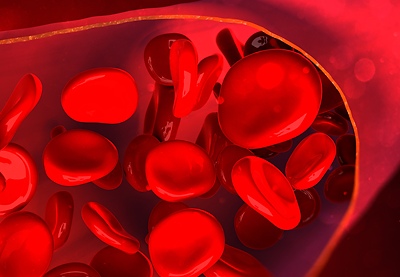Recombinant human erythropoietin (EPO)—a hormone that stimulates red blood cell production—is perhaps best known as the performance-enhancing substance banned from many sports. But, in addition to augmenting physical performance, there is evidence to suggest that EPO also boosts mental acuity in people with cognitive deficits.
Some studies suggest the cognitive benefits of EPO may be the result of increased production of oxygen-carrying red blood cells, while others suggest EPO produced in the brain helps to protect and boost the number of connections between neurons.
A 2007
trial in Germany that compared chronically ill schizophrenia patients who randomly received intravenous EPO or placebo over a three-month period revealed that those administered EPO had significant cognitive improvements relative to placebo. However, there was no difference in psychopathology or social functioning between the groups.
Since then, other researchers, such as Kamilla Miskowiak, Ph.D., head of the Neurocognition and Emotion in Affective Disorders group at the Psychiatric Centre of Copenhagen University Hospital, have broadened research into this promising agent.
For both trials, patients were randomly assigned to receive eight weekly infusions of either EPO or placebo; the researchers evaluated the patients for 14 weeks after initiating treatment. In both studies, the patients who were administered EPO demonstrated improvements in several measures of cognitive function compared with those who were administered placebo. The patients continued to experience these improvements in cognitive function at the 14-week assessment, even after the EPO infusions had concluded and blood cell levels had normalized.
The treatment-resistant depression trial also explored the benefits of EPO on mood; the results demonstrated improvement in some depressive symptoms, though EPO was not better than placebo in reducing overall depression score on the Hamilton Rating Scale for Depression.
While Michelle Riba, M.D., a clinical professor of psychiatry at the University of Michigan and director of the Psycho-Oncology Program at the university’s Comprehensive Cancer Center, said she thinks the EPO trials reflect the potential value of drug repurposing, she questions how far reaching the cognitive benefits of EPO might be.
“Many, many drugs we use today have come from serendipitous observations,” she said, pointing to monoamine oxidase inhibitors (MAOIs) as a psychiatric example. MAOIs evolved from the medication iproniazid, which was originally designed to treat tuberculosis but proved to have a mood-elevating effect. However, she added, “There are numerous etiologies for cognitive problems, so to think that any one drug will be an effective panacea may be naïve.”
Given that EPO’s cognitive benefits might be limited, the potential adverse effects associated with EPO use—which include hypertension, blood clots, and stroke—should discourage clinicians from prescribing the medication off-label, she said.
While Riba noted that she understands how a new treatment option can be appealing for patients with refractory psychiatric illness, “for EPO, however, I believe it’s too risky and expensive a proposition,” she told Psychiatric News.
Miskowiak acknowledged that periodic EPO infusions carry risks—and staving off these risks requires routine blood monitoring, which sometimes discourages use. Still, she said she is optimistic about the neurocognitive benefits the medication appears to offer even after a single, high-dose infusion.
“It’s possible that EPO can find a place as a secondary agent that is used sparingly in key periods, like during a particularly severe relapse, to help a patient stabilize,” she said.
She and her colleagues are hoping to soon launch a large phase 3 trial of weekly EPO infusions for depressed patients.
Miskowiak’s clinical studies were funded by the Danish Ministry of Science, Innovation, and Higher Education, Novo Nordisk Foundation, Beckett Fonden, and Savvaerksejer Juhl’s Mindefond. ■

